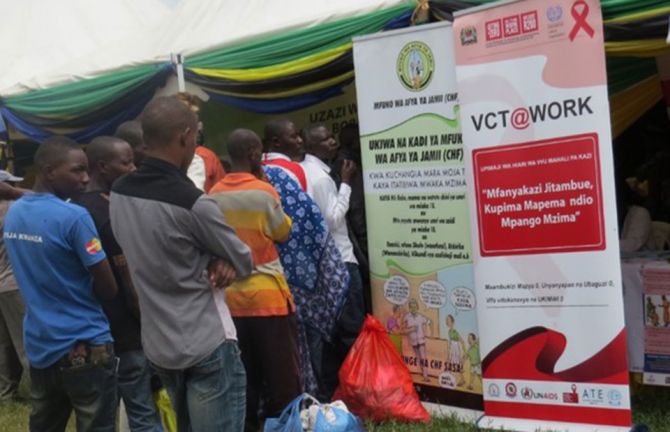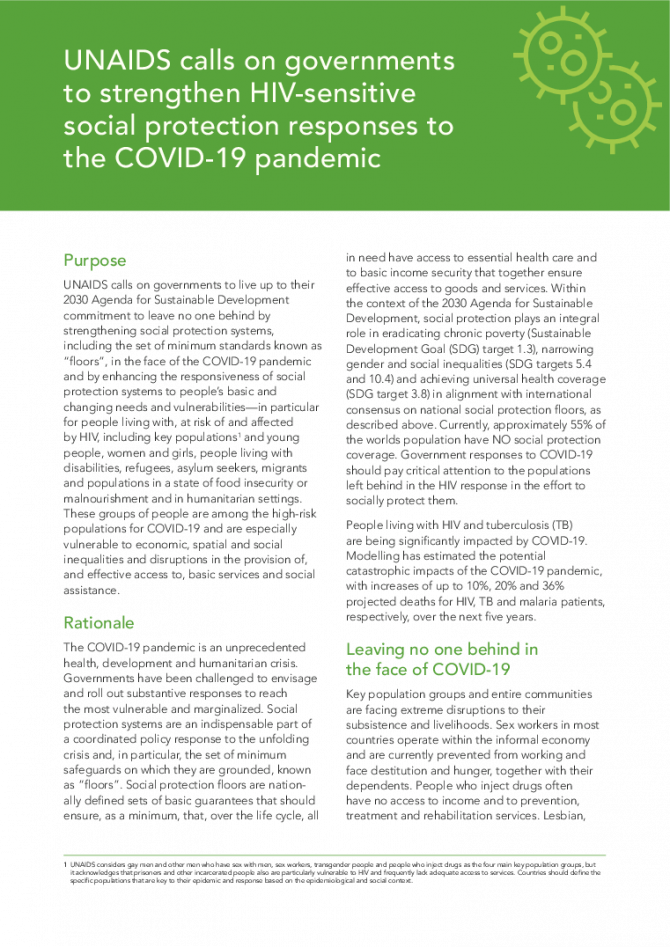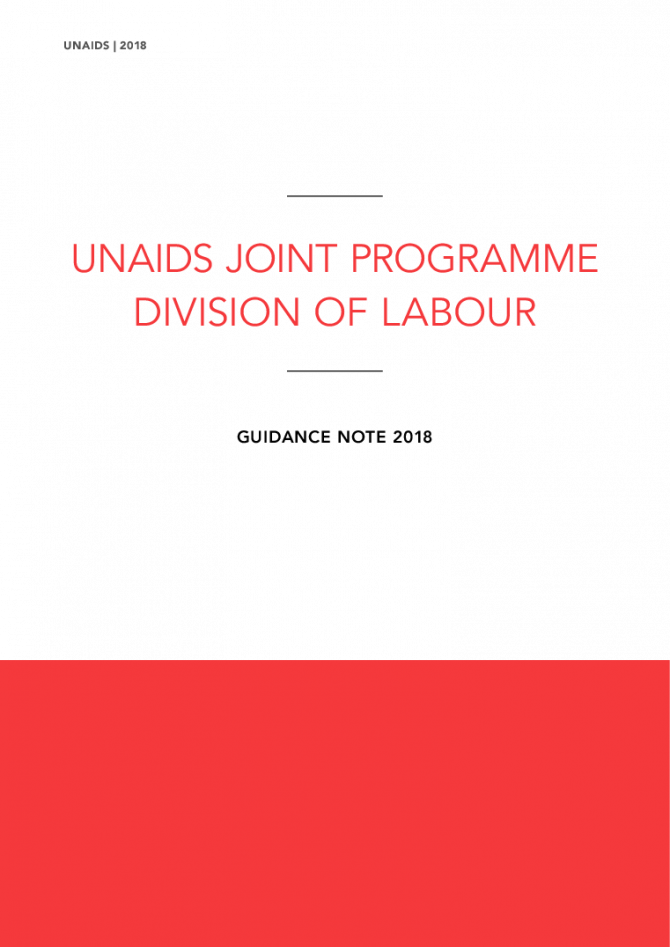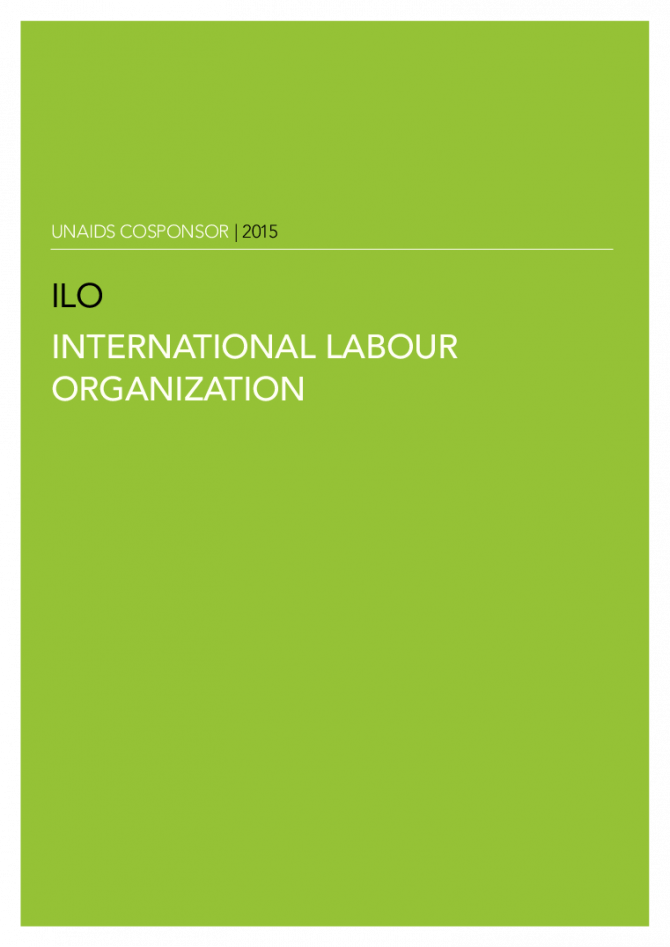
The International Labour Organization (ILO) is the specialized United Nations agency responsible for the world of work. Its main aims are to promote rights at work, encourage decent employment opportunities, enhance social protection and strengthen dialogue on work-related issues.
The unique tripartite structure of ILO gives an equal voice to workers, employers and governments to ensure that the views of these social partners are closely reflected in labour standards and in shaping policies and programmes.
ILO develops and monitors the application of international labour standards that take the form of conventions and recommendations. These standards cover all aspects of the world of work, establishing fundamental principles and rights to ensure decent work for all.
As a Cosponsor of UNAIDS, and under the UNAIDS Division of Labour, ILO is the lead agency on HIV workplace policies and programmes and private sector mobilization.
ILO recognizes that HIV has a potentially devastating impact on labour and productivity and represents an enormous burden for working people, their families and communities in a number of ways. For example, HIVrelated stigma and discrimination threaten their fundamental rights at work and undermine their opportunities to obtain decent and sustainable employment. The workplace offers a unique entry point to reach this large, vital and productive segment of the population. The organization has been involved in the HIV response since 1998 through the world of work.
In June 2010, ILO Member States adopted the Recommendation concerning HIV and AIDS and the world of work (No. 200). Recommendation No. 200 builds on the key principles of the ILO code of practice on HIV/AIDS and the world of work (2001) and is the first international labour standard focused on the protection of human rights at work for people living with and affected by HIV. The ILO recommendation promotes the implementation of national tripartite policies and programmes designed and developed through an inclusive dialogue process. The fundamental tenets are cross-cutting and wide-ranging:
- The HIV response should be recognized as contributing to the realization of human rights, fundamental freedoms and gender equality for all.
- There should be no discrimination or stigmatization of workers on the grounds of real or perceived HIV status.
- Prevention of HIV transmission should be a fundamental priority.
- Workplaces should facilitate access to HIV prevention, treatment, care and support services.
- Workers should be able to participate in the design, implementation and evaluation of HIV programmes.
- Prevention efforts should address the specific risks of the occupational transmission of HIV, tuberculosis and related diseases.
- Privacy and confidentiality should be ensured with regard to HIV status.
- There should be no mandatory HIV testing or screening for employment purposes.
- The workplace response should be a part of national policies and programmes, including those related to labour, education, social protection and health.
ILO delivers a range of programmes to support countries in responding to HIV in the workplace. It has embarked on a series of rights-based initiatives for the implementation of ILO Recommendation No. 200, such as the VCT@WORK initiative, supported by UNAIDS and launched in 2013.
This innovative intervention aims to reach 5 million workers with voluntary HIV testing by 2015. Those found to be living with the virus are referred to HIV care, support and, if necessary, treatment. The VCT@WORK initiative therefore contributes to ILO’s efforts to achieve Millennium Development Goal 6 and the global target of reaching 15 million people living with HIV with antiretroviral treatment by 2015, agreed by Member States in the 2011 United Nations Political Declaration on HIV and AIDS. It also forms part of the ongoing ILO Getting to Zero at Work campaign aimed at promoting the labour rights of people living with HIV.
Another vital aspect of ILO’s work involves promoting social protection as a means to reducing vulnerability to HIV and mitigating its impact on people living with or affected by the virus, their families and communities. The organization actively provides assistance to countries to help to extend adequate levels of social protection, including access to health care and income security.
Additional information is available at www.ilo.org/global/topics/hiv-aids/lang--en/index.htm, at www.ilo.org/ aids/WCMS_215899/lang--en/index.htm and at www.ilo.org/zero.









